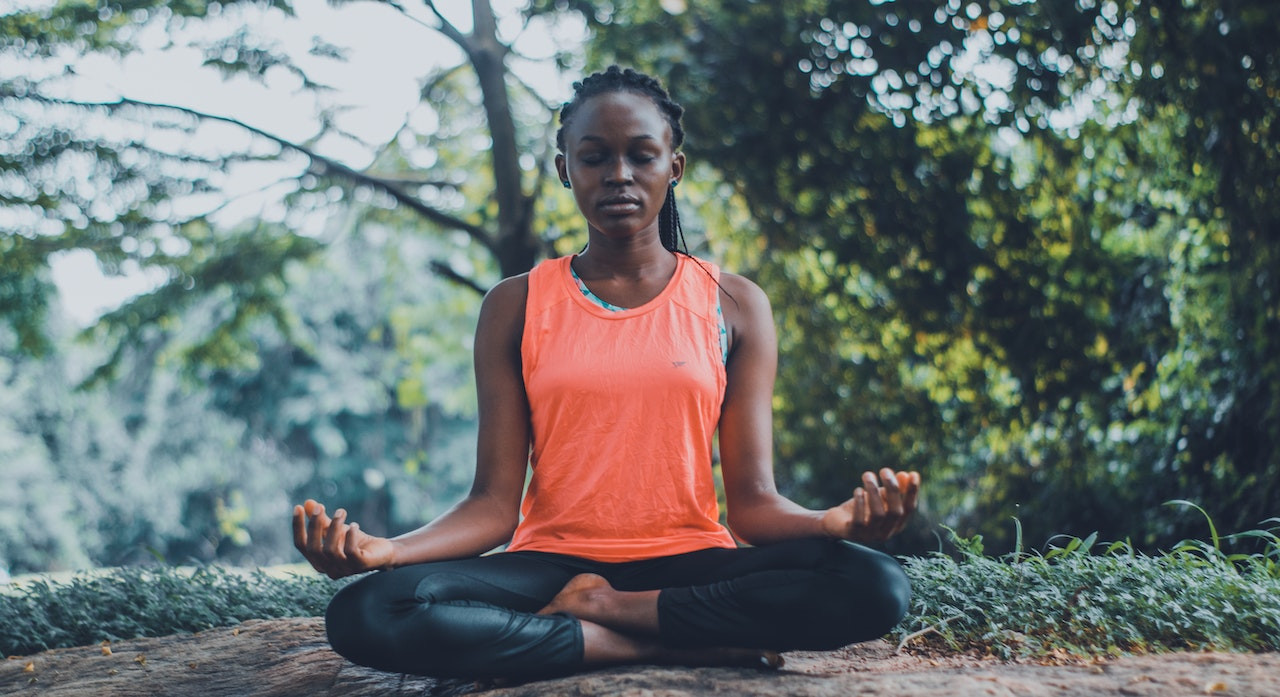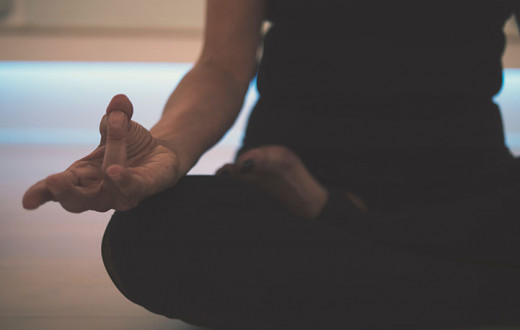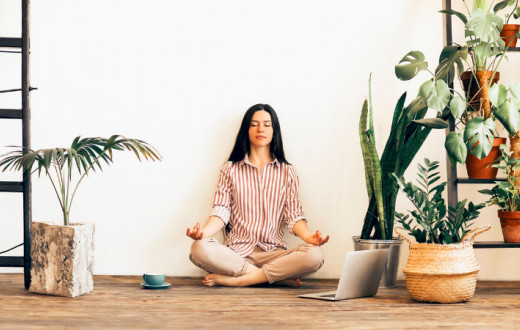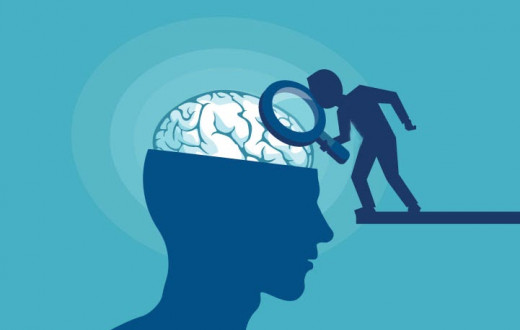
Did you know that your body has an internal clock that regulates your sleep-wake cycles? It’s called the circadian rhythm, and it’s the reason why most people get sleepy around the same time every night. If you have a consistent sleep schedule, you may even wake up at the same time every morning without the need for an alarm clock.
Genetics play a part in your circadian rhythm and influence what time of day you are most alert, which is why some people are night owls and others are early birds. However, your environment and habits are equally important.
When you stick to a consistent routine, the cues you send your internal clock help you feel well-rested when you wake up and sleepy at bedtime. On the other hand, an inconsistent schedule or jet lag can throw off your circadian rhythm, making it hard to fall asleep when your head hits the pillow.
If you’ve been pulling a lot of all-nighters recently, your sleep schedule is probably out of whack. Thankfully, you can get back on track by providing your circadian rhythm with the right signals. If you’d like to learn how to fix your sleep schedule, keep reading — this article will teach you to do just that!
Topics covered:
- Why sleep schedules are so important
- What disrupts our sleep schedule?
- How to fix your sleep schedule
- Start adjusting your nightly habits with The Art of Living
Why sleep schedules are so important

Sticking to a regular sleep schedule benefits your body and brain in many ways, primarily because it ensures you get plenty of sleep every night. When your biological clock is used to your bedtime, you’re less likely to toss and turn before you finally fall asleep.
Maintaining a consistent sleep schedule helps your body’s internal clock run more efficiently. When it’s getting near your typical bedtime, your brain will begin releasing melatonin, the hormone that creates feelings of sleepiness. The result is natural sleep without the use of sleep medicine or artificial supplements.
When you establish a healthy sleep schedule, you’re also more likely to get more deep sleep and rapid eye movement (REM) sleep. Both of these sleep phases are critical for physical and mental health, including:
- Memory consolidation
- Emotional regulation
- Rejuvenation of cells
- Immune system function
It’s no wonder we feel better when we get a good night's sleep! Not to mention we ward off the side effects of sleep deprivation, which can be serious.
Getting plenty of quality sleep helps you feel more refreshed the next day, and you may find yourself getting up at your normal wake-up time without an alarm.
What disrupts our sleep schedule?

Even though your circadian rhythm does its best to keep your sleep schedule on track, life can get in the way. When you’re stressed or forced to push sleep to the back burner to meet deadlines or tend to responsibilities, your schedule can become unpredictable, making it hard for your circadian rhythm to function optimally.
Something similar happens when we travel to an area in a different time zone or do shift work because we’re asking our bodies to stay up when our body is used to sleeping.
Still, an inconsistent routine isn’t the only reason your internal clock can get thrown off. Other factors that influence your circadian clock include:
- Not getting enough natural light during the day
- Poor sleep hygiene
- Too much caffeine
- Too much blue light exposure from electronic devices
- Napping during the day or hitting the snooze button repeatedly
Identifying the reason your sleep cycle is thrown off is crucial, but if you can’t seem to figure it out, you may want to visit your healthcare provider or a sleep specialist. You may need to be tested for sleep disorders, depending on the sleep issues you’re facing.
How to fix your sleep schedule

No matter the reason for your sleep problems, it’s important to establish better habits so your circadian rhythm can function more efficiently. These suggestions will help you get your sleep schedule back on track!
Slowly shift your times
If your sleep schedule is sporadic or has been thrown off due to changes in your life, it’s best to start slow. This is especially true if you need to make big changes in your sleep schedule. For example, if you normally go to bed at midnight, you can gradually go to bed earlier in increments of 15 or 30 minutes until you meet your desired bedtime.
Making slow, less drastic changes are easier on your circadian rhythm, and in the long run, makes it easier for you to adjust. Just make sure you are getting enough sleep as you transition (for most adults that’s about 8 hours of sleep).
Create a nightly routine
Your bedtime routine can have a big impact on your sleep habits, which is why it’s important to plan yours out carefully. Here are some ideas:
- Switch your electronic devices to “night shift” at least two hours before your bedtime.
- Stop using social media or texting at least an hour before bed; if possible, turn off your cell phone.
- Diffuse relaxing essential oils and/or drink a relaxing herbal tea
- Read a book, journal, draw (any calming hobby you enjoy)
- Do your dental hygiene and skincare routine
- Practice breathwork
The important thing is to stick to the same sleep routine every day because it will help you prepare to fall asleep at the right time.
Add meditation to your day

Meditation, when practiced regularly, can have a huge impact on the quality of your sleep. Since meditation lowers cortisol levels in the blood, you’ll be able to fall asleep faster. This leads to more time in deep sleep over the course of the night. (This is the phase in which waste products are cleared from your brain, the immune system is strengthened, and your muscles and tissues grow and are repaired.)
You don’t have to practice meditation at night to reap the sleep benefits it offers. In fact, it’s probably best to incorporate it into a different part of your day since it can leave you feeling energized.
Follow a guided relaxation
If you have trouble relaxing before bedtime or have a lot of tension in your body, guided relaxation can help. Yoga Nidra is one type of guided relaxation you can do before bed and involves bringing attention to and relaxing each body part systematically. The result is deeper, more restful sleep. You may also be interested in our sleep support meditations.
Avoid sleep disruptors

The last thing you want to do is sabotage your sleep with disruptions or habits that throw off your body’s sleep cycle. Exposure to bright lights at night, including night lights with colored bulbs (especially blue or green) can delay the production of melatonin. Light exposure from your smartphone has a similar effect, which is why it’s best to put away any devices that emit artificial light.
Screen time isn’t the only thing that can keep you from falling asleep. Exercising too close to bedtime raises your body temperature and energizes you with a steady supply of endorphins. Although these effects can be positive during the day, they’ll likely keep you awake at night.
Similarly, caffeine is a stimulant and blocks adenosine, a naturally occurring organic compound that creates feelings of sleepiness. If you don’t build up enough adenosine over the day, you won’t feel tired at night, and you’ll likely stay up late.
Set the environment
The right environment goes a long way when it comes to getting a good night’s sleep. Create one that works for you and helps you relax. You may want to:
- Put up blackout curtains or use an eye mask
- Use a white noise machine
- Keep the temperature cool
- Clean your sleep environment regularly so it’s free from dust and clutter
Start adjusting your nightly habits with The Art of Living
If your sleep schedule is out of whack, it’s time to take action! The tips in this post can help you create healthy sleep habits and work on establishing consistent sleep timing every night. As your internal clock adjusts, you’ll find it easier to go to bed and wake up at consistent times, leading to better quality sleep.
If you’d like to improve the quality of your sleep, The Art of Living can help! Our courses teach meditation and breathwork techniques that encourage relaxation and lead to a better night’s sleep. To learn more, join our free introductory class with a live instructor!































